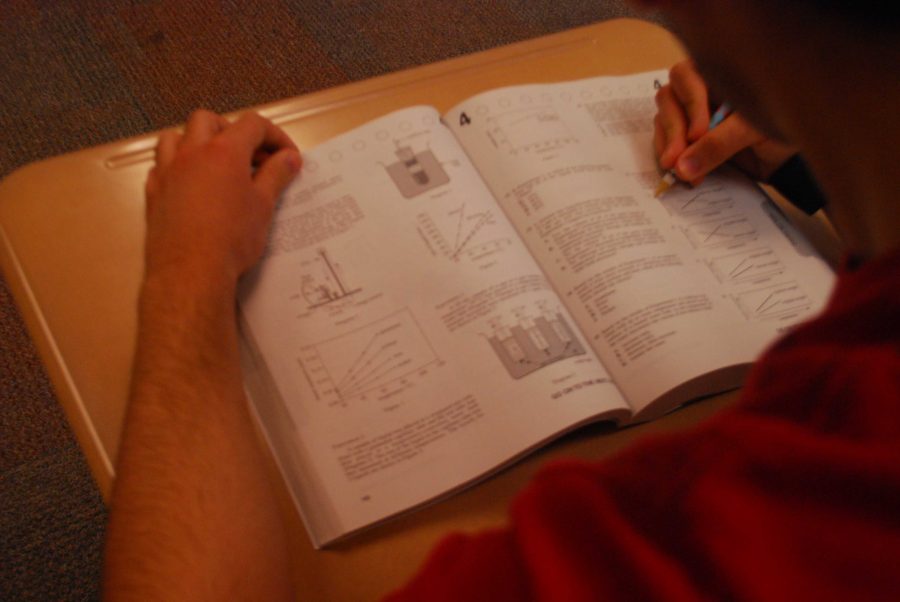
This year is the first year that the state has cut funding for the writing portion of the ACT.
Huntley’s 2012 juniors will be taking the ACT on April 24, but many of the juniors who want to complete the writing portion of the test are taking it on April 14, having to pay $49.50 for the same test they will be taking during school, just a little longer.
“A large percentage of our student population is applying to schools that require [the writing portion,]” said counselor Pat Olson-McGee.
Most upper-level, ivy-league schools require students to take the writing portion of the ACT before applying, which puts many students in a tight spot.
“Because the schooling isn’t offering it, teachers aren’t going over it as much,” said junior Danielle Ory. “I think she [only] went through one prompt all year.”
The multiple choice portion of the ACT costs $34 per student, but the test plus writing costs $49.50.
Because of the tough economic situation, the state budget for school funding has become tighter as well. With approximately 140,000 juniors in the state, that extra $15.50 per student definitely adds up. It is assumed that the state gets a discount for “buying in bulk,” but the idea remains the same.
Not all colleges require applicants to take the writing portion. So, in theory it was a good decision to save money.
Unfortunately, not even the multiple choice portion of the ACT will be offered by our school two years from now.
According to Chief Academic Officer Mike Moan, Illinois will be switching from the ACT to the PARCC (Partnership for the Assessment of Readiness for College and Careers) assessment in the 2014-2015 school year. Each state in the nation has either signed up to have their students take the PARCC or Smarter Balance assessments.
“This’ll be the first time that the majority of the states will take the same test,” said Moan.
Twenty-four states are currently on board with the PARCC assessment, but the exam itself has not been finished officially yet. All public information is available at www.parcconline.org.
“Hopefully it’ll add rigor to the curriculum,” said AP Literature teacher Margie Brand.
The federal government’s goal in making these decisions is to standardize testing on the national level to be used as a more accurate basis of comparison.
That means this year’s freshmen will not have an opportunity to take the ACT with the school.
“No, I don’t like [that we can’t take the ACT] because it helps you into college,” said freshman Latrell Pigram. “If you can’t afford to take the test, there’s a lesser chance of you getting into college.”
However, the PARCC currently has won acceptance from about 150 colleges nation-wide, including both public and private institutions. An updated list is on the website.
According to the PARCC website, all of Illinois’ public two- and four-year colleges have committed to participate in PARCC and ultimately use those assessments as one indicator of students’ readiness for entry-level, credit-bearing college courses. This list includes University of Illinois, Illinois State University, Northern Illinois University, and more.
“I’m disappointed we won’t be using [the ACT] anymore,” said McGee. “To me, it’s a great opportunity.”
While the ACT is a great tool for colleges and earning scholarship money, this next wave of testing will hopefully be just as useful.
“It’ll be monumental,” said Moan.


